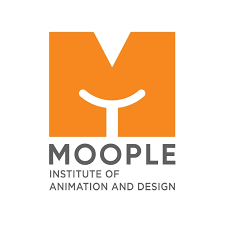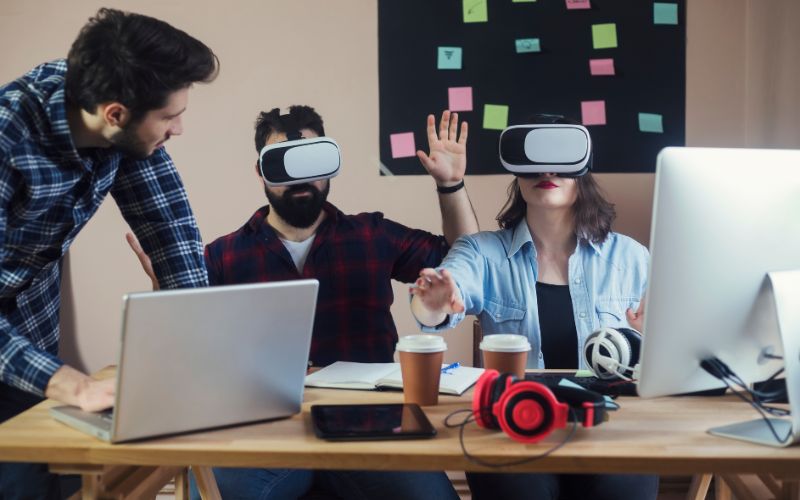In this fast-paced era, digital immersion has taken on a pivotal role. Entertainment has become increasingly attractive. Video games are not just for fun; they have become a billion-dollar industry. With that kind of growth, learning game development is only getting more exciting, more visual, and way more creative.
So, if you want to join a course on game development, now is the time. Today, tools like Artificial Intelligence (AI), Virtual Reality (VR), and cloud technology are changing the core of learning game development. They speed up the process far more efficiently.
Let us explore how these tools are changing game development education. We will also see what it means for your career.
Game Development: A Multi-Skill Discipline
In earlier days, game development was all about programming. That old classroom style does not work anymore. Now, it is a mix of many skills, including:
- Game design theory: Level design, gameplay mechanics, player psychology
- Programming for Games: C#, C++, Python, and visual scripting tools
- Art and Animation: 2D and 3D modeling, rigging, texturing
- Sound and music integration: Background scores, voiceovers, sound effects
- Game Engines: Unity, Unreal Engine, Godot
- Testing and debugging: Bug tracking, beta testing, player feedback integration
- Multiplayer mechanics: Optimising for Android/iOS, using touch inputs, reducing battery drain
- Publishing and marketing: In-app purchases, ads, crowdfunding
You also learn soft skills like teamwork and time management. The goal is not just to make games. But to make them work in the real world.
How Artificial Intelligence Is Changing Game Development Learning
AI is changing not just games, but how students learn to build them. Explore below the various segments where AI has a prominent role. Let us learn how AI makes work easier and feasible:
AI in game creation
AI makes game creation an easy process by incorporating the best features.
- Procedural Content Generation: AI builds levels, terrain, or enemy behaviour.
- Smart NPCs: Learners code AI-driven characters with decision-making abilities.
AI in learning
AI adds speed, creativity, and smarter workflows to students and their future work.
- Personalised Learning Paths: AI analyses student progress and recommends lessons accordingly.
- Real-Time Code Review: Smart platforms point out errors and suggest better code.
- Simulated Testing: AI bots test gameplay across different styles to find bugs or UX issues.
How Virtual Reality Makes Learning Immersive
VR adds a new layer to learning. It is not just about building in 3D. It is about experiencing it. VR makes training fun, hands-on, and very real. Given below is a list of benefits that VR has to offer:
- Step Into Your Game: See your work from a player’s viewpoint.
- Interactive Classrooms: Students and mentors can collaborate inside VR labs.
- Real-Time Feedback: Change a 3D object and test it instantly.
- Multi-Device Training: Learn for Meta Quest, HTC Vive, or mobile VR with the same project.
Tools Every Game Development Student Should Know
A good video game development course introduces students to the real-life studio tools. These will not only make your work handy but will also contribute to flexibility. Students must not just learn tools. They must build portfolios using them. The essential platforms and tools you must be well aware of are:
- Unity 3D: For mobile, 2D, 3D, and AR/VR games
- Unreal Engine 5: AAA-quality rendering, real-time visuals
- Blender: Free 3D modelling and animation tool
- Substance Painter: For textures and detailing
- Git & GitHub: For version control and collaboration
- Trello/Slack/Discord: Project management and teamwork
Rise of Mobile Games Development
Mobile gaming is now the top platform in revenue and reach. Mobile games development marks a prominent spot if you wish to lead in this sector. It is going to provide you with multiple benefits. The reasons below prove how essential mobile gaming can be:
- Huge Market: Billions of users across Android and iOS.
- Low Entry Barrier: Free tools like Unity let you publish fast.
- Fast Prototyping: Smaller game sizes make testing quick.
- Cross-platform Demand: Build once, launch everywhere.
Students must gain various skills to fast-track their game development journey. They must be proficient in designing for small screens. Students must aim to build light games with fast load times. They should add monetisations like ads or in-app purchases. Using tools like Unity Mobile or Flutter with Flame Engine will be beneficial. Most students launch mobile games before completing their course. This is the best way to learn fast and gain feedback.
Gamification in Learning: Game Design Meets Game Learning
Today’s best game development classes are becoming gamified themselves. In game development education, this method is not only for fun. It teaches students how games work while they learn key skills. This means that they offer ‘quests’ as lessons designed as game levels. Students must “rescue a broken game” or “launch an indie studio simulation.” Also, you can get ‘XP and Badges’ as rewards when you complete your projects. You can unlock advanced topics after completing basic modules. Badges can be shared on LinkedIn or portfolios to glorify your accomplishments.
Collaborate or compete with others in terms of ‘Team Challenges.’ These friendly competitions help boost motivation. You can go for ‘Progress Tracking’ to see your growth visually, like game stats. Hidden content or advanced tools are unlocked by progress. These mimic in-game mechanics like unlocking power-ups or features. Some institutes create entire fictional universes for learning. This way, you learn to build games while learning through games. It is engaging and effective. It also helps learners understand core gaming mechanics in practice. You can now make boring tasks feel like accomplishments.
Upcoming Trends in Game Development Education
To stay ahead, students must prepare for what is coming next. Some trends are rumoured to take over. These include the following:
1. Esports Game Design
- Learn to build competitive, fast-paced games
- Balance fairness, leaderboards, and multiplayer sync
2. Inclusive Game Creation
- Design for everyone, including players with disabilities
- Learn to use colorblind modes, subtitle systems, and custom control schemes
3. Cross-Media Storytelling
- Build game universes that also work as books, comics, or shows
- Use storytelling skills across platforms
4. Cloud Streaming and Gaming
- Understand how platforms like Stadia, GeForce Now, and Xbox Cloud work
- Design games that load fast, even on weaker hardware
Why Choose Moople Academy for Game Development Training
At Moople Academy, we train you to meet and exceed the expectations of the game development industry. Whether you are starting from zero or upskilling, we ensure you learn what is valuable.
Choose us for your game development journey for our:
- Industry-Based Curriculum: Our courses are developed by game designers and developers with relevant experience. We deliver what the market demands. Learn about Unity and Unreal Engine, AI-driven game logic, VR prototyping, and more.
- Hands-On Projects: Our students create games, not theory. You will learn about 2D mobile titles and console-style 3D projects. You will build and publish playable games, debug real-life scenarios and do live testing. No fluff, just practical learning.
- Career Help: We are not going to let you flounder after the course has ended. We provide resume help, practice interviews, and leads for jobs. Our team is there to help you land your first (or next) opportunity in the gaming industry. We help you launch, whether it be a studio deal or a freelance job.
The Takeaway
Game development is not a hobby anymore. It has grown into a creative industry based around tech. As AI and VR continue to evolve and reshape the way we play and learn, your education must evolve as well. Find video game development courses that:
- Real-life projects
- Mobile, VR and cloud environments
- Collaboration and communication
- Access to tools + Placement assistance.
FAQs
Do I need to know coding before starting a course in game development?
Not at all. Many students start without any coding experience.
What kind of portfolio should I build during the course?
Your portfolio should include 2D games, a mobile game, one 3D or VR project, and code samples on GitHub. These show your range and readiness.
Can I get a job right after finishing my video game development course?
Yes, if the course includes practical training. Institutes like Moople Academy also help with job leads, interview prep, and freelancing tips.

